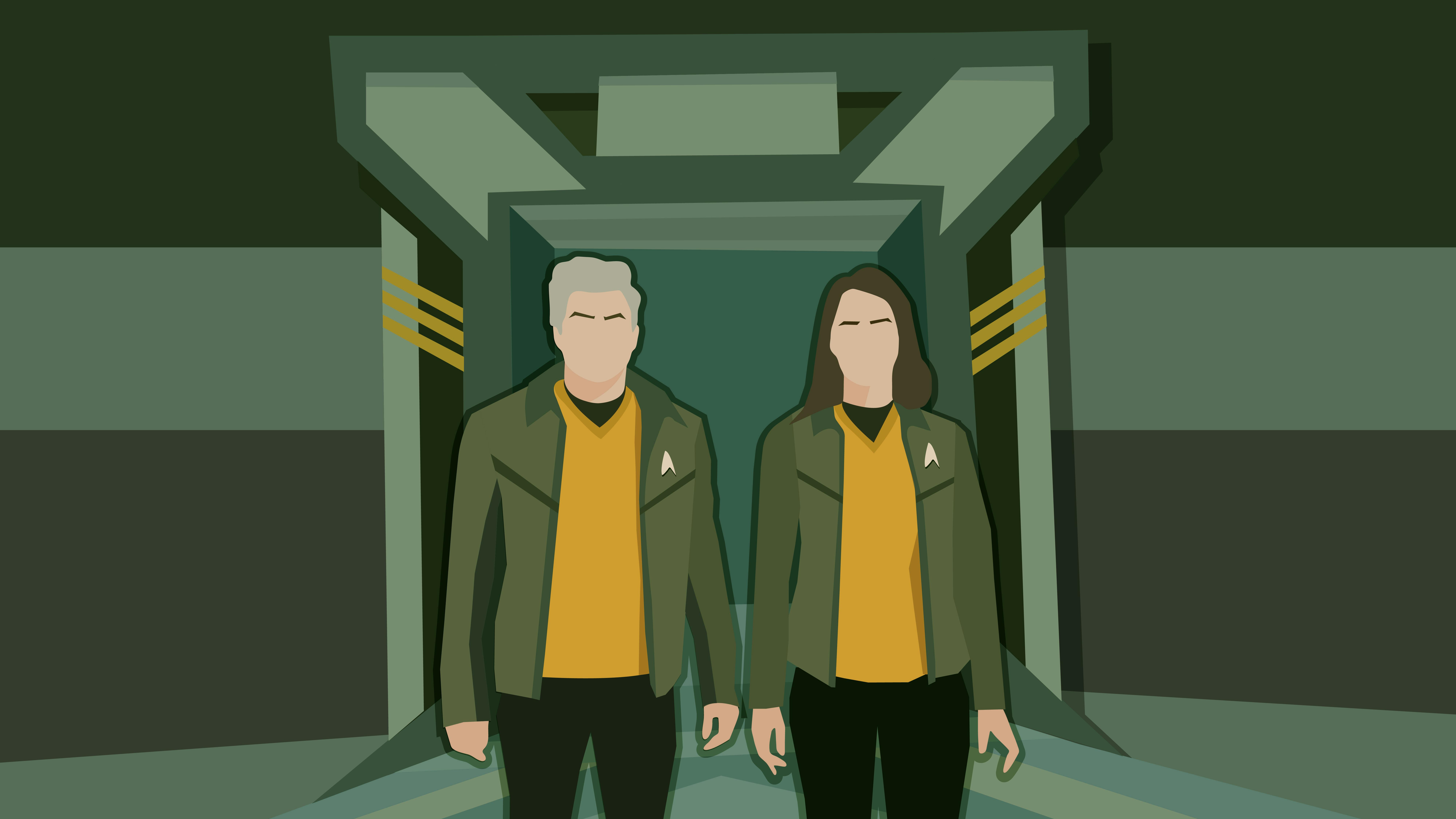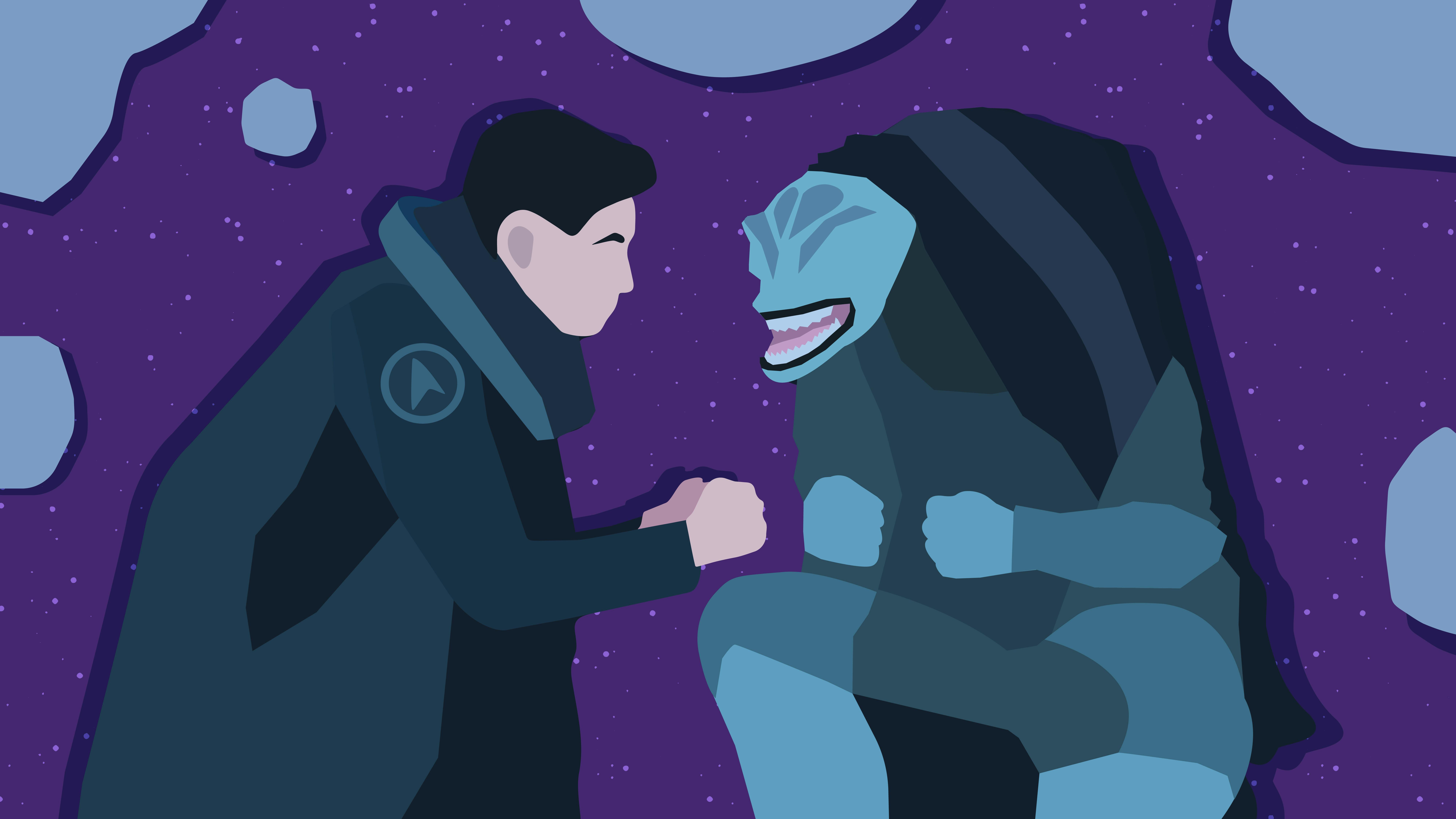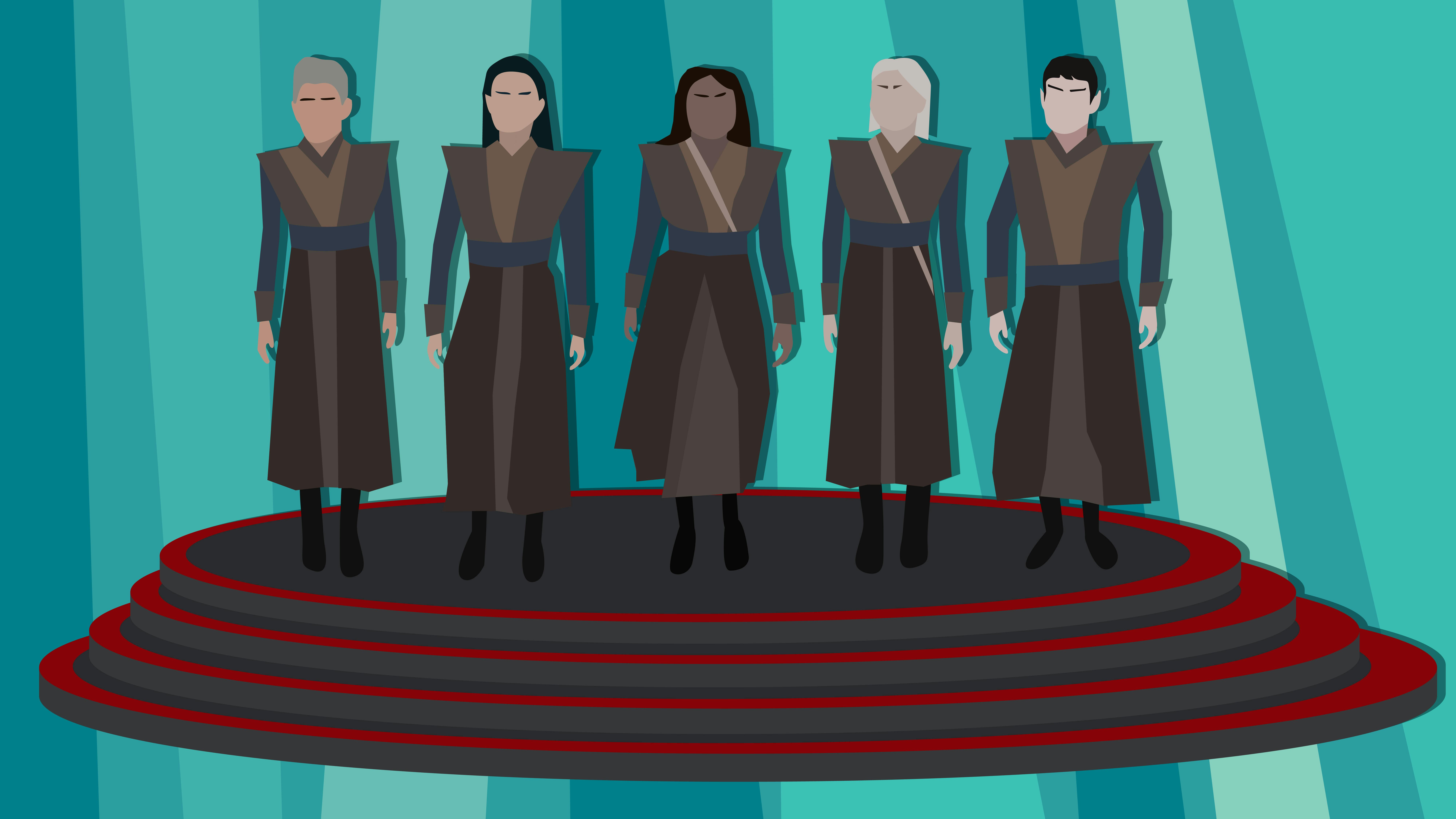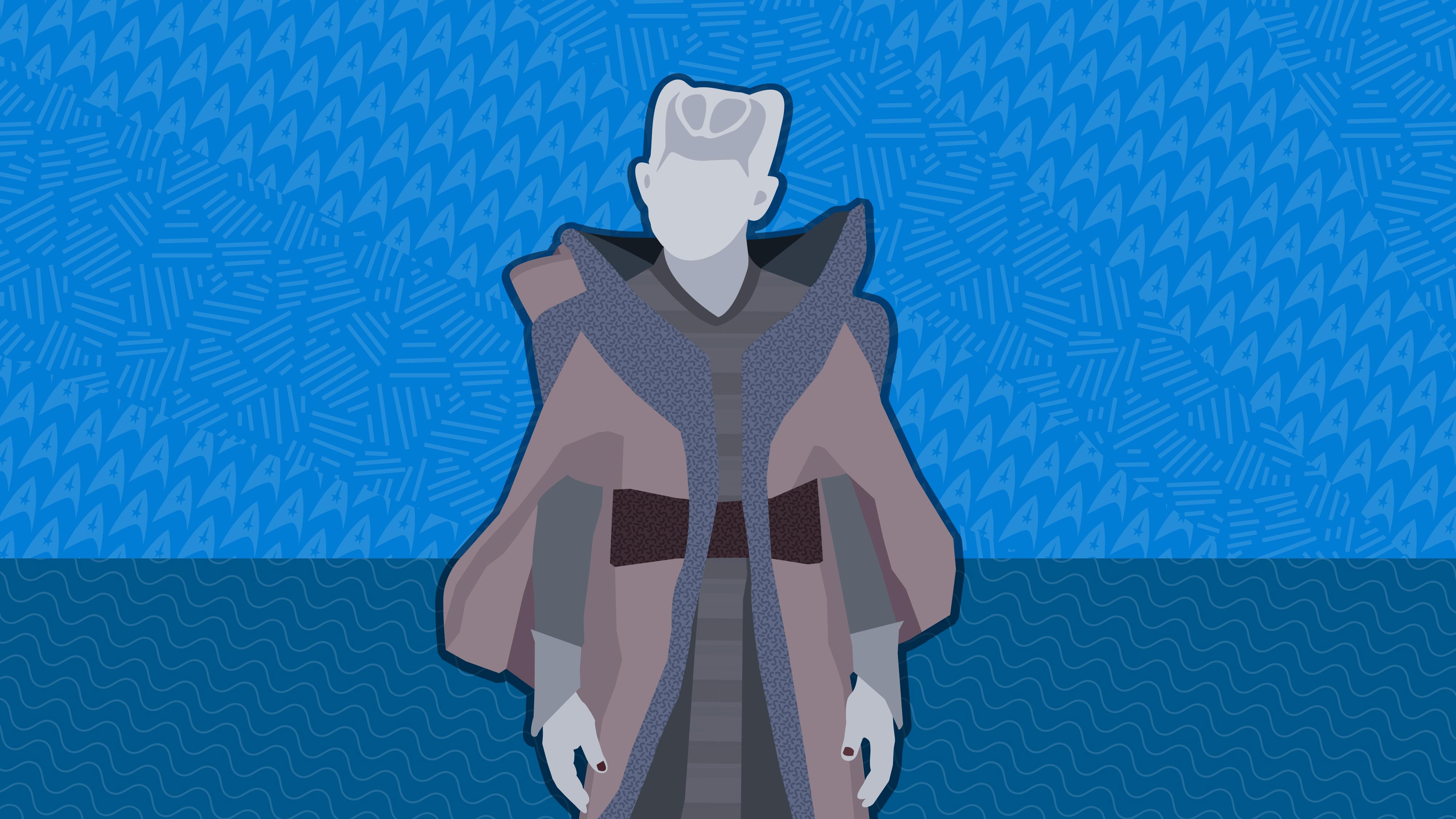Published Aug 27, 2025
WARP FIVE: Strange New Worlds' Documentarian Questions Starfleet's Purpose
Guest actor Mynor Luken shines a spotlight on Beto Ortegas' arrival and focus on the Federation.
SPOILER WARNING: This interview contains story details and plot points for Star Trek: Strange New Worlds.
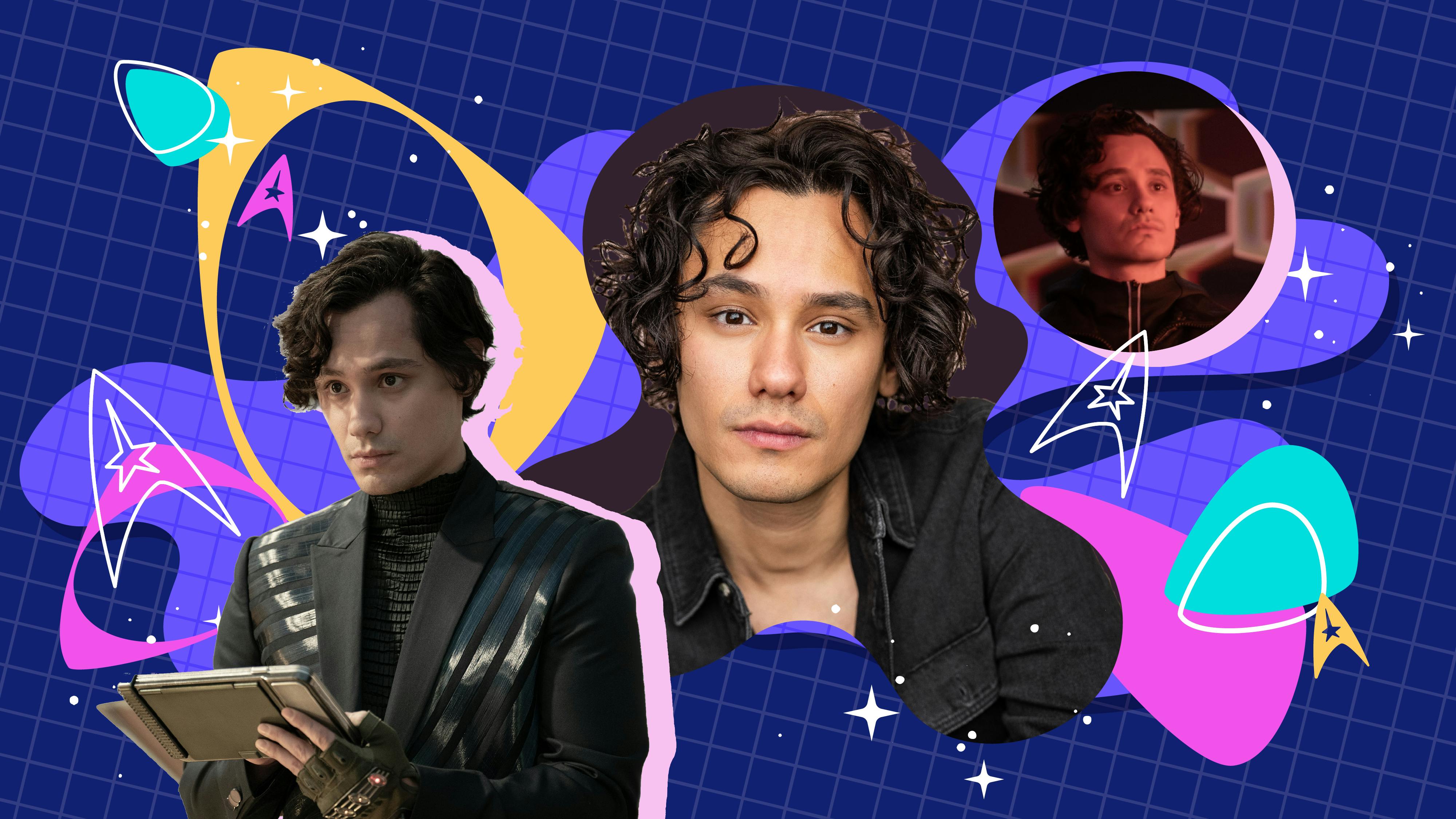
YellowBelly / StarTrek.com
Welcome to Warp Five, StarTrek.com's five question post-mortem with your favorite featured talent from the latest Star Trek episodes.
In ' third season, new life and civilizations await the crew of the U.S.S. Enterprise, with new adventures that test our characters' grit and resolve. Aboard the Federation's flagship, documentarian (and Lt. Erica Ortegas' brother) Humberto "Beto" Ortegas had been granted security clearance to record their current roster of missions in order to highlight the Starfleet's centennial celebration. Beto's documentary was provided security footage that was declassified by Starfleet Command.
StarTrek.com had the opportunity to talk with Mynor Luken on his character's presence on the Enterprise this season, including the latest episode, "," his perspective as an outsider, and more!
Who is Beto Ortegas?
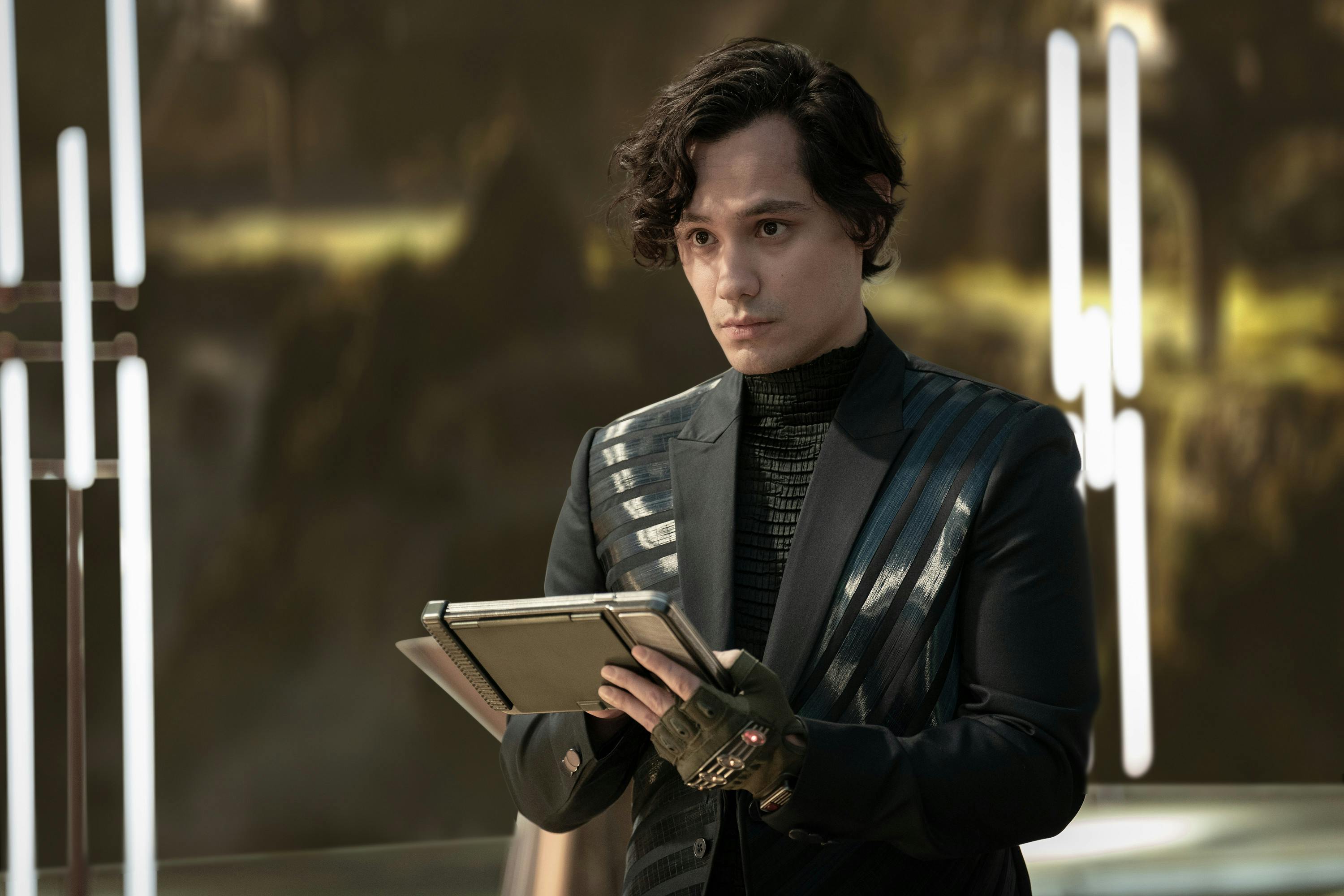
"Wedding Bell Blues"
StarTrek.com
Like other audition processes for storied franchises, heavily veiled in secrecy, Mynor Luken wasn't given much details about the role he was pursuing. However, he almost preferred it that way.
"I was given as few details as possible so that I didn't know what I was getting myself," divulges Luken, "because it's very treasured. I knew about the documentarian aspect. I knew that I was someone's brother and that I was going to be interacting with one of the main roles, but that was all I knew."
"It was very liberating," Luken adds. "I had a chance to just do my own take because I was going to be a new character. I was going to be human, and that allowed me freedom to just explore and do whatever I want. It was really cool, and I enjoyed it."
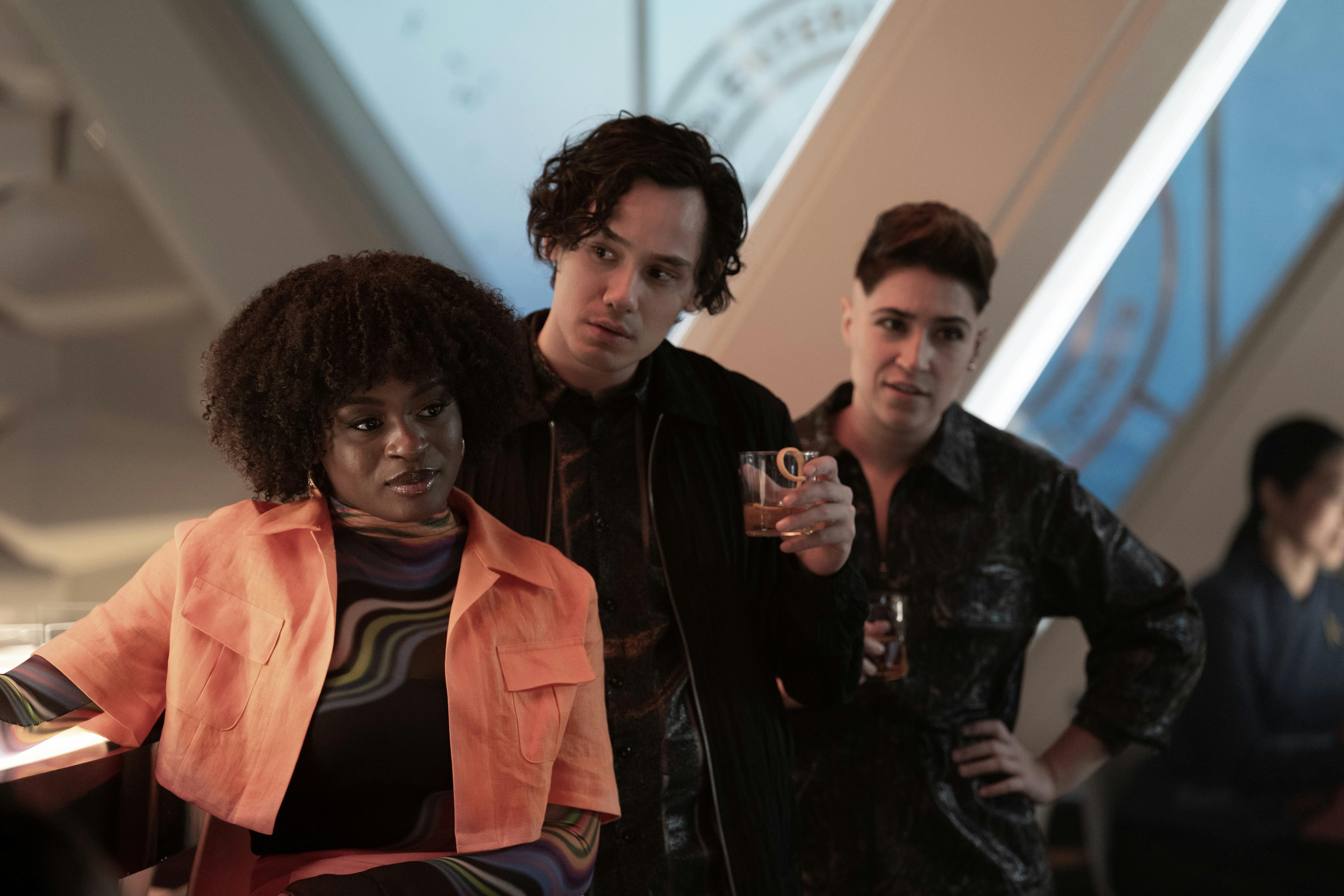
"Wedding Bell Blues"
StarTrek.com
After being steeped in the role across several episodes, Luken has a clear understanding of his character, Beto.
"He's very curious," states Luken. "He's an intellectual, but he's definitely shy and vulnerable. That's why he latched onto Nyota as much as he did. It was beneficial because that was his way in and he felt accepted by her."
"Obviously, there's his sister," Luken continues. "There's a bit of tension and it's a bit complicated. At first, it was very uncomfortable for him because it's such new territory. He's a filmmaker, not really a soldier or warrior. He looks up to that aspect of his sister — the warrior, the knight, and the valiant. He's more reserved; he has a lot of heart. He wants to pursue truth; he wants to get to the bottom of things, always putting his art first, maybe negatively so at times. But he's very introspective and very inquisitive."
What Are Beto's Views of Starfleet?
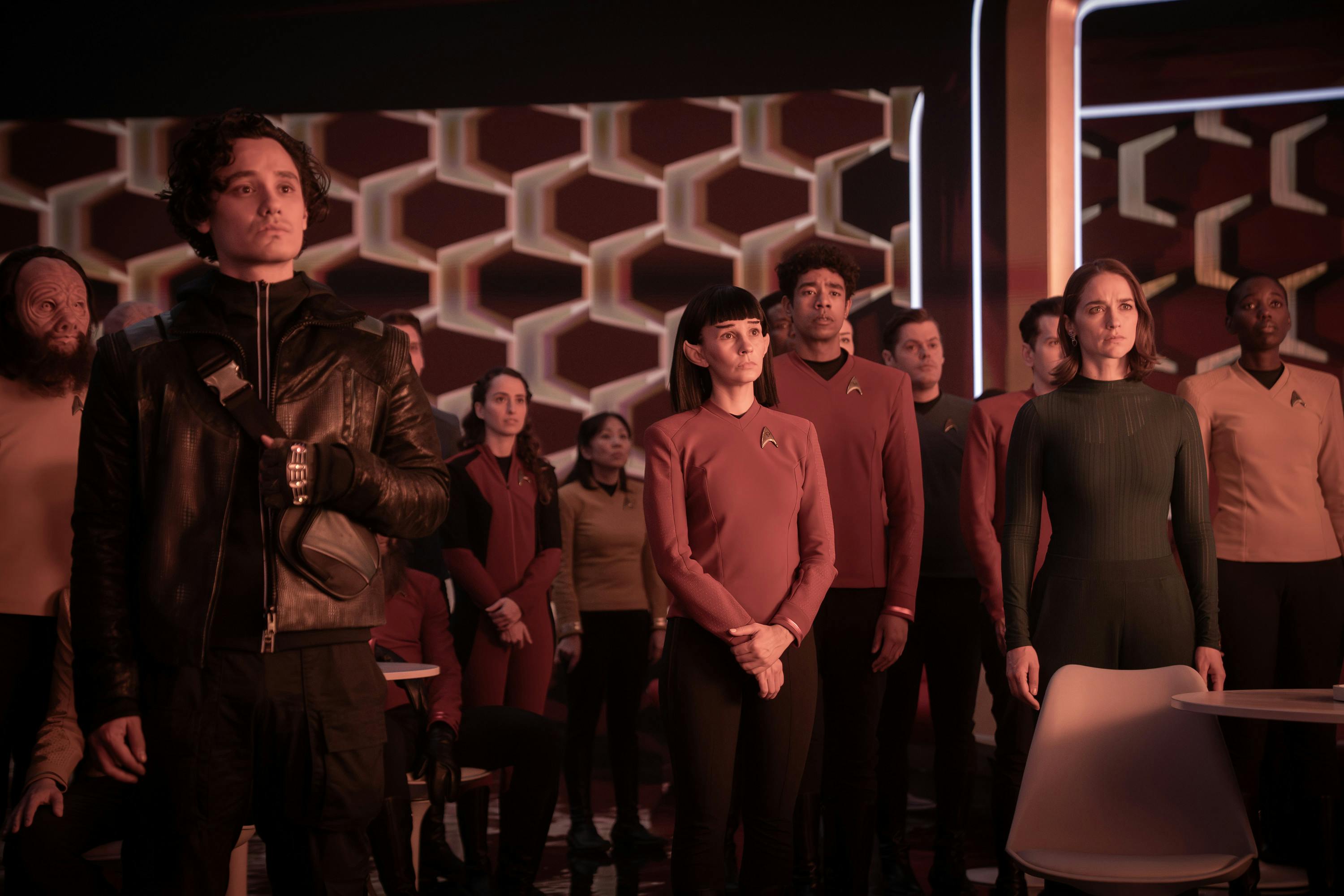
"What is Starfleet?"
In the opening of his documentary, What is Starfleet, Beto states, "Starfleet presents themselves as our quadrant's shining example of — Duty. Honor. Peacekeeping," before positing, "What separates a 'Federation' from an 'Empire'? Both colonize. Both impose their laws and doctrines on others..."
Shedding light on Beto's harsh perspective of Starfleet, Luken, an older sibling himself, explains, "When you have a sibling, there can be a rivalry between the two, but there's also a lot of protectiveness. You feel this sense of duty to be there for your sibling. Knowing that my sister [Erica] left to pursue her dream. Her dream was to fly that ship and to be the best. Meanwhile, my dream was to pursue art. We deviated right there. But seeing and knowing how endangered she's been and how much she's gone through, the protector side of him came out.
"And maybe there was a bit of animosity towards Starfleet," continues Luken. "It wasn't animosity towards the people, but more so towards the machine of it, towards the larger group of it. 'How dare you put my family in danger? That's all I really have.'"
"He wanted to uncover the truth," Luken adds. "He wanted to get to the bottom of things, but all of that was tainted. He was severely hurt at the fact that his [loved one] sort of abandoned him. That's how he saw it anyway. Then, to see [his newfound friends] be in a very rough and dangerous situation, it was very scary. All of that tainted the image of these people to him."
"While he came in there with a bit of bias, as time goes on, and as he develops relationships with these people, he gets to the truth that that's their dreams. His dream is an artist, and their dream is to be who they are. That's when he finally found common ground and he started to accept them and they in turn accepted him."
Where Did Beto See His Doc Going?
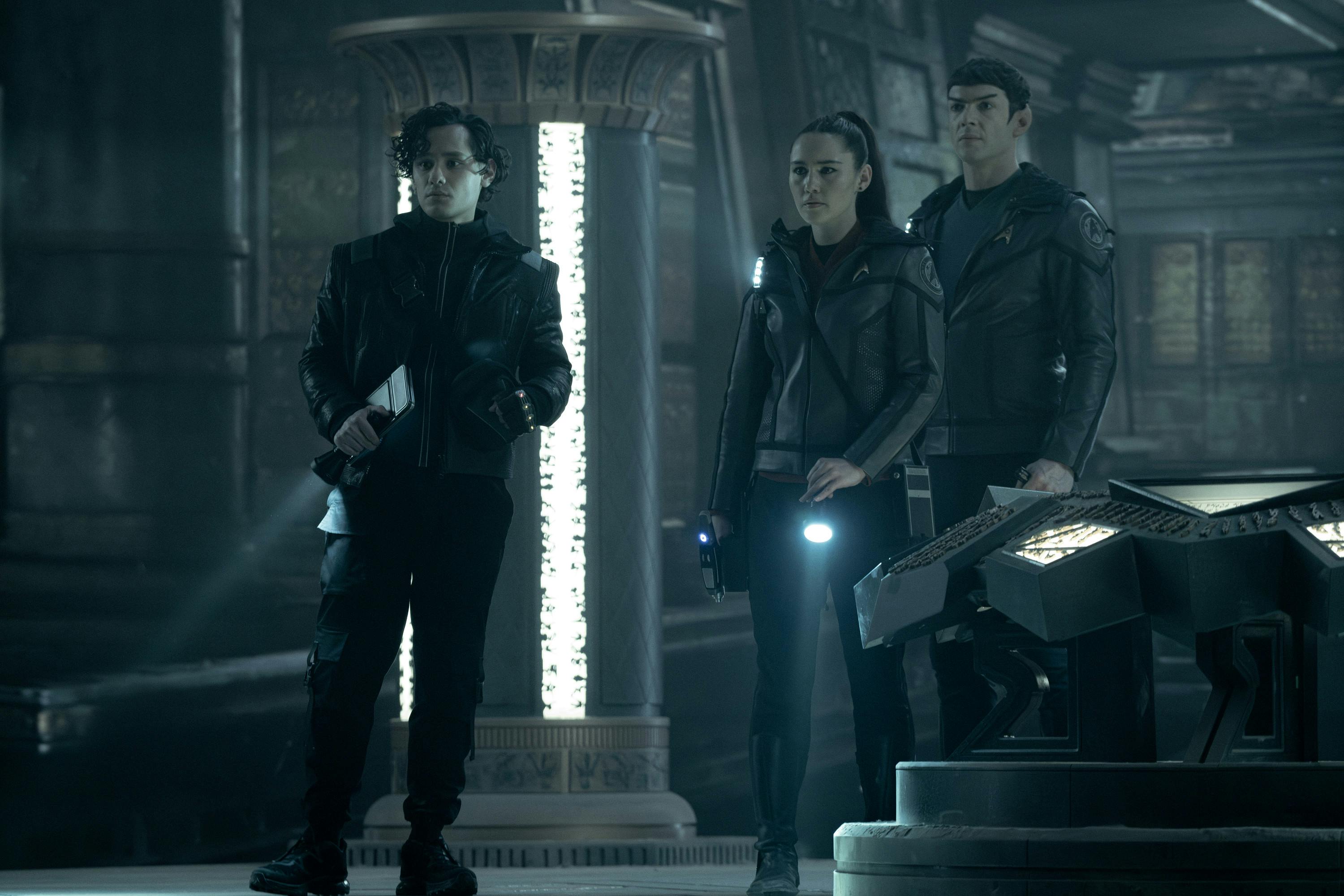
"Through the Lens of Time"
StarTrek.com
After encountering the Vezda in "," the loss of a crewmember, and the in "What is Starfleet?," Beto presses Uhura to understand why she would align herself with Starfleet, who he views as a "colonizer who takes," the Enterprise's communications officer finally sees what his documentary is — a hit piece.
Luken acknowledges Beto's early intentions, "He was going there with an agenda. He was going there to shoot his documentary, but also he was going there trying to see where he can break them. See where do they fall apart. When you have a group of people facing an evil entity, you'll start to get that side of them. When you get more boots on the ground, you must figure things out right now as their lives are in danger. You see the 'flight or fight,' soldier aspect of these people."
Recalling the crew's , Luken says, "There's that beautiful scene where Nyota calms him down because he thinks he's going to die. It's so cool that Nyota has always been that bridge that Starfleet where it's, 'Let's get out of here; let's survive,' and the other Starfleet in this episode where it's more that they don't understand what their orders are or how they feel emotionally about it."
Why Did Beto's Views Change?
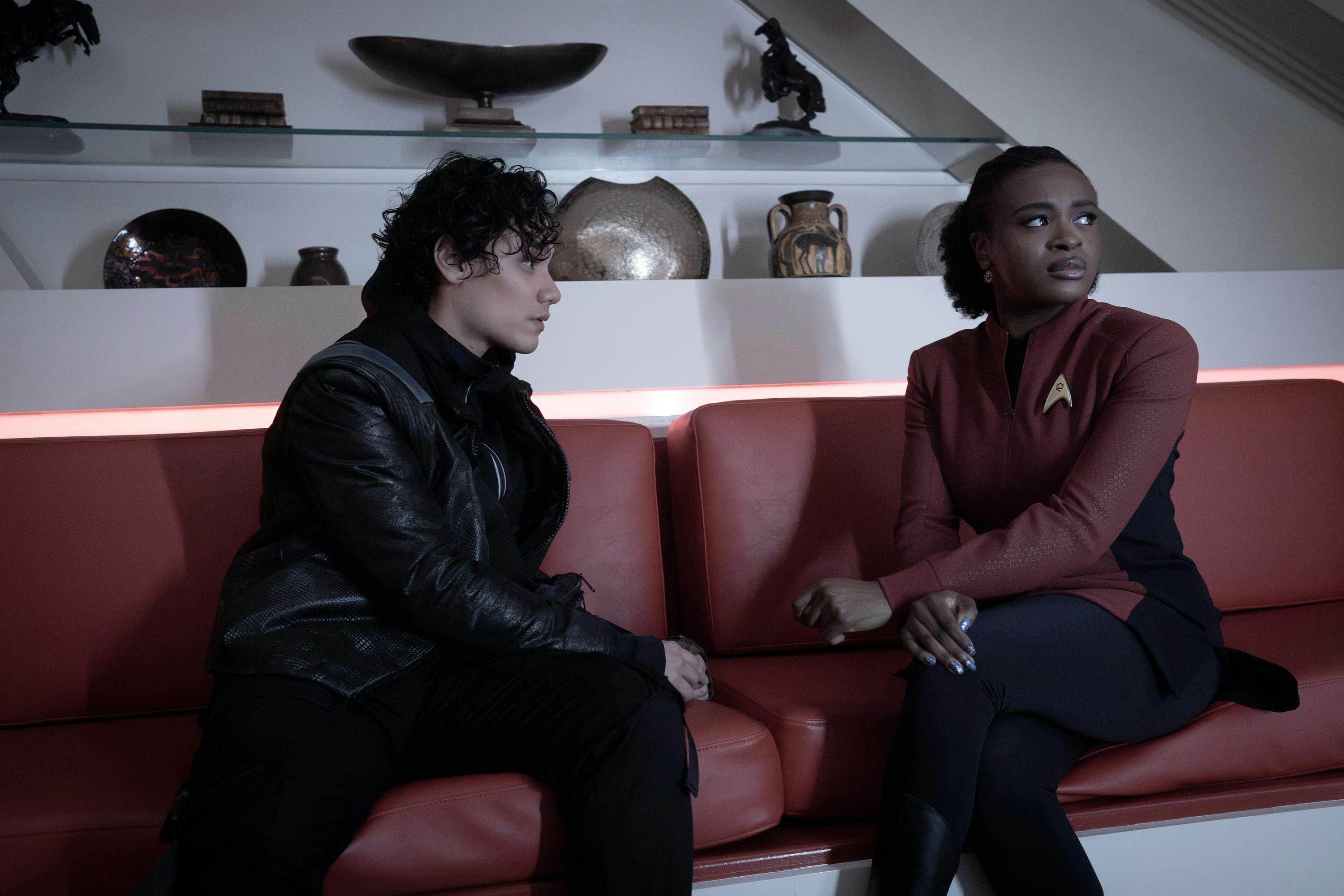
"What is Starfleet?"
StarTrek.com
As Beto tries to understand why Starfleet would deliver a living "weapon of war" to a distant planet, Luken reflects on the predicament, "At the end of the day, though, it may seem wrong what they're doing, they're actually doing the right thing for this creature and for everyone involved."
"Again, Nyota is there bridging both sides of the coin," states Luken. "It was cool to get to see more of Starfleet; there's the military aspect and then the more valiant aspect of it. Obviously Beto resonates more with the emotional side of Starfleet, which is what we are seeing in this episode. How do we appease this situation that we find ourselves in? That is just inherently tough, but we must do what we got to do. That's growth, seeing both sides, which helps Beto understand much more about Starfleet, about all of the crew, and understand how these people carry weapons but also explore space."
"As he puts it, 'you're [still] a colonizer,'" he continues. "But when he sees their humanity, he starts to see that these are people who are doing the best they can't, and aren't we all like that at the end of the day?"
What brings this message home for Beto is seeing how both Spock and Uhura were both willing to risk brain damage, even death, to communicate with the Jikaru.
"That's where the change of perspective comes into play," notes Luken. "Knowing that these are not just people who blindly follow orders, but instead they are people who do so because they believe in it so much to the point that they are willing to risk their lives and their wellbeing for the mission. And again, family is all you have, that's where their perspective comes from. That's the moment of realization where he goes, 'This is not just people following things that they don't understand or that maybe they don't even agree with. These are people who genuinely believe that what they're doing is changing lives and they're bringing the best to the worlds that they visit.' He found respect in that. He found honor in that, and that was the pivotal moment for him. Things changed right there."
This episode felt like things converged for Luken — for his character Beto and for himself personally. "It was just such an experience," he shares. "As we were doing this, really see these human beings that I was working with, going through those things, and seeing it as Beto. To actually see these things happening, it changes you as the character, but it also changes you as the person. It was such a cathartic moment for me as an actor and the character to see everyone give their all. It was a very cool moment of intersection with Beto and myself."
When Did He Make First Contact?
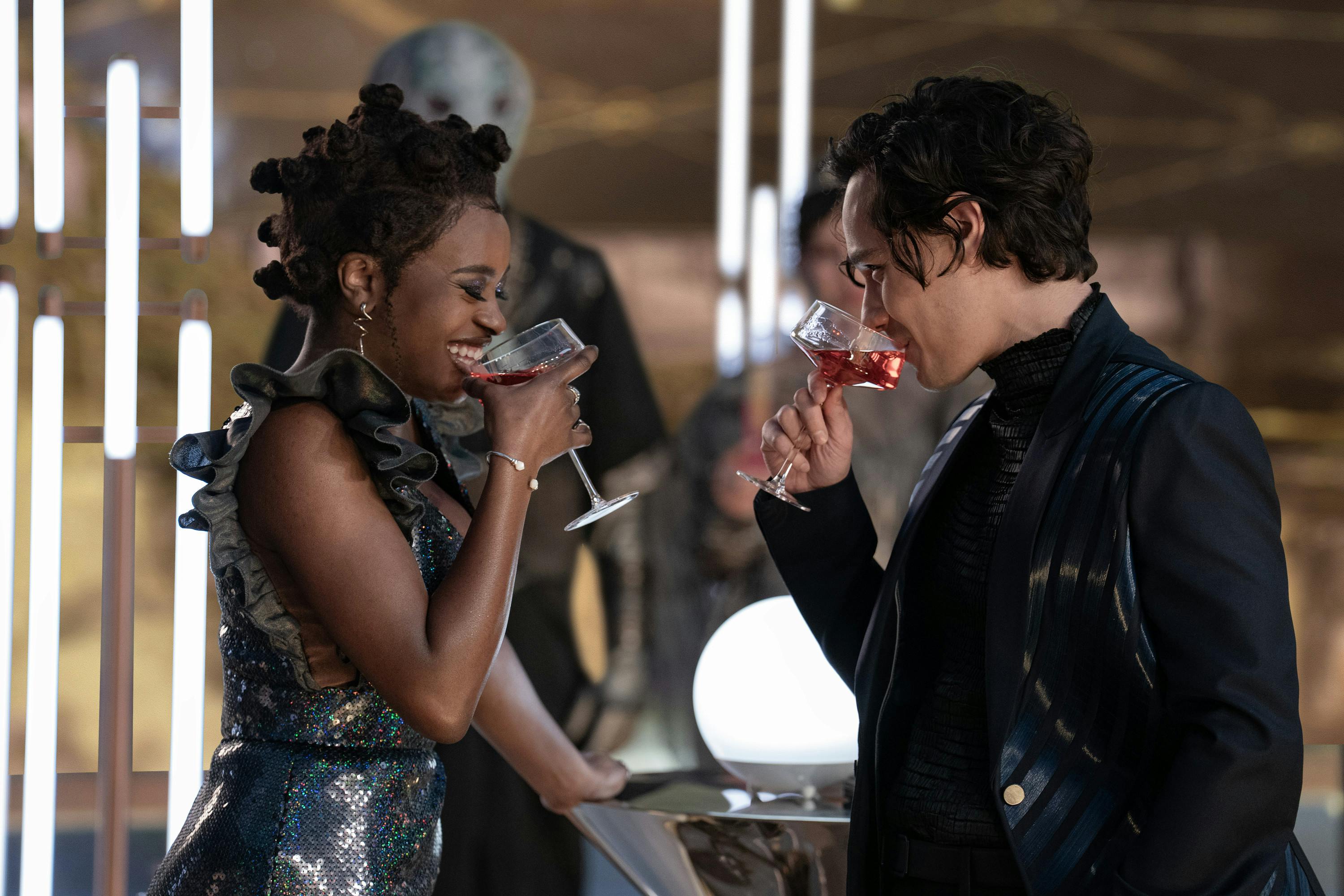
"Wedding Bell Blues"
StarTrek.com
Like many, Luken discovered Star Trek by way of his family and immediately latched on to a character he found fascinating.
"I definitely knew of it, obviously quite a bit," Luken divulges. "My grandpa, my mom's dad, he was a big fan. I didn't get to spend a lot of time with him, but I do remember watching a few episodes together when I was a little kid."
"I was a fan of Spock," adds Luken. "I always just loved him. It wasn't a tradition for me to sit with [my grandpa] and watch it. But as I was growing older, my mom was working a lot. I spent most of my time taking care of my sister, we would watch TV, so it was always in the orbit, for sure."

